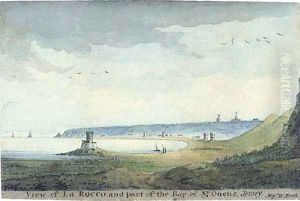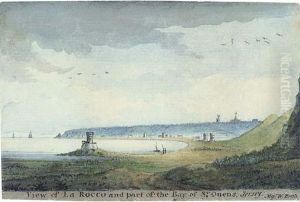Lieutenant Colonel William Booth Paintings
Lieutenant Colonel William Booth was not known for his contributions to the art world in the traditional sense, as he was neither an artist nor an art historian. Instead, William Booth is best remembered as the founder of The Salvation Army, an international Christian organization and charity that began in London, England, in 1865. Born on April 10, 1829, in Nottingham, England, Booth embarked on a mission to bring salvation to the poor, destitute, and hungry by meeting both their physical and spiritual needs.
His early career was not in the realm of charity or religious evangelism; Booth initially worked as a pawnbroker's assistant, a job that exposed him to the harsh realities of poverty and deprivation in urban England. This experience deeply affected him and partly influenced his later decision to dedicate his life to helping the underprivileged. At age 15, he underwent a religious conversion, becoming a devout Methodist, and began preaching and evangelizing. His fervent desire to save souls led him to become an itinerant preacher, traveling extensively to preach the gospel.
In 1865, William Booth, along with his wife Catherine Mumford Booth, founded The Christian Mission in the East End of London, which was later renamed The Salvation Army in 1878. The organization adopted a military structure, with Booth as its first General. It was innovative in its approach to social reform, combining military discipline with Christian philanthropy. The Salvation Army worked on the front lines in the battle against poverty and social inequality, providing food, shelter, and employment to the needy, while also advocating for social reform.
Under Booth's leadership, The Salvation Army expanded rapidly, both in Britain and internationally. By the time of his death on August 20, 1912, it had established missions in dozens of countries across the world. Booth's legacy as a social reformer and evangelist is profound. His life's work laid the foundation for The Salvation Army's ongoing mission to aid those in need, a testament to his vision of a society transformed by Christian charity and social action. While not an artist in the traditional sense, William Booth's life and work have been an inspiration to many, including those in the artistic community, who resonate with his commitment to social justice and humanitarian causes.


